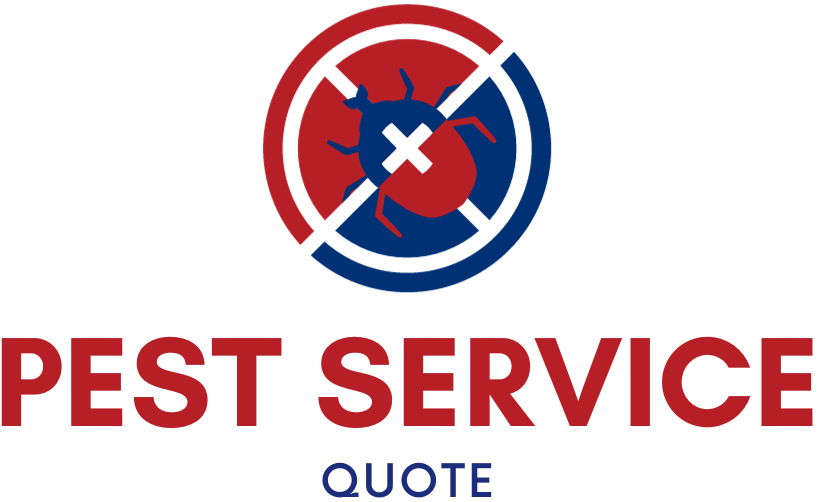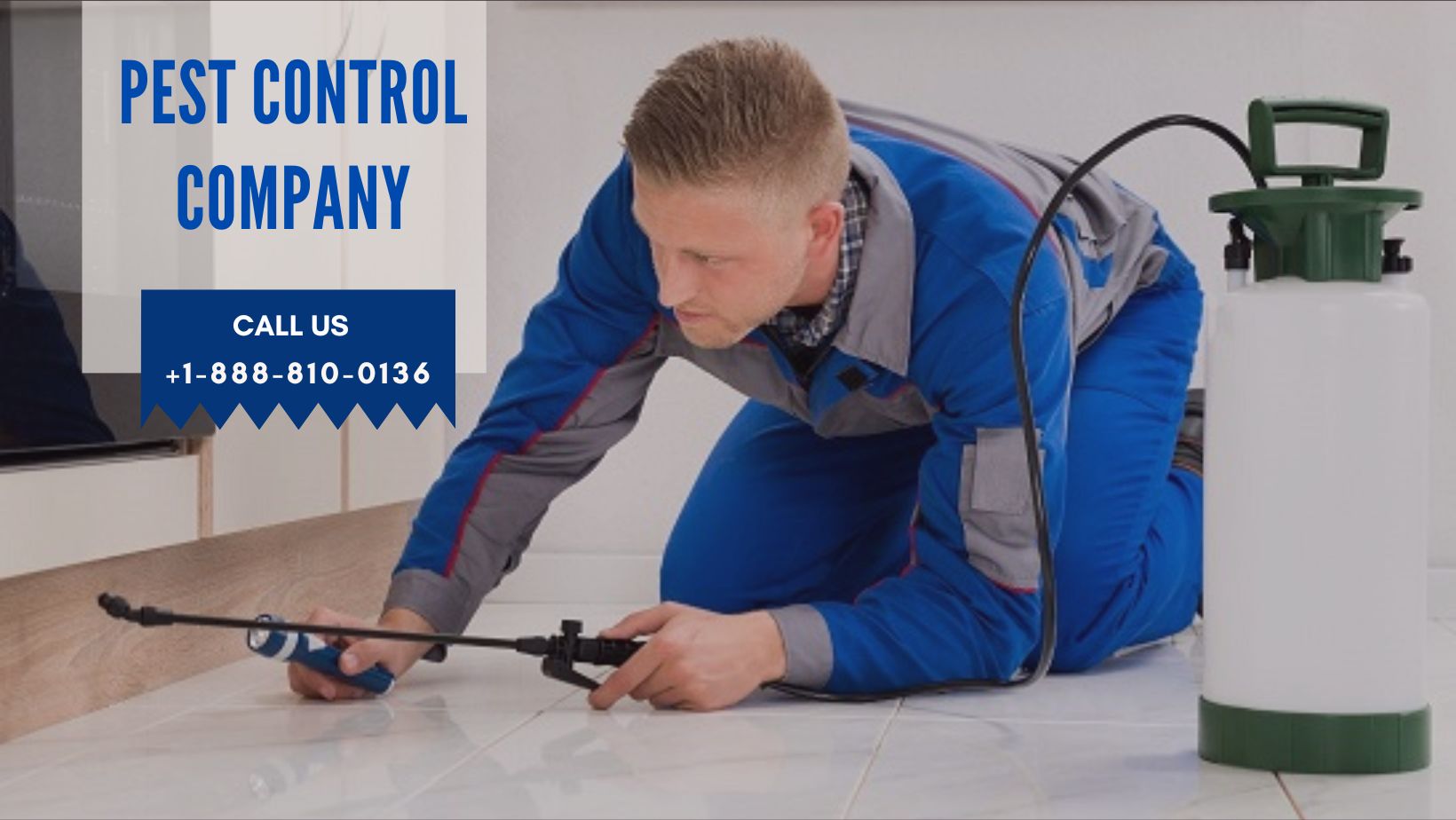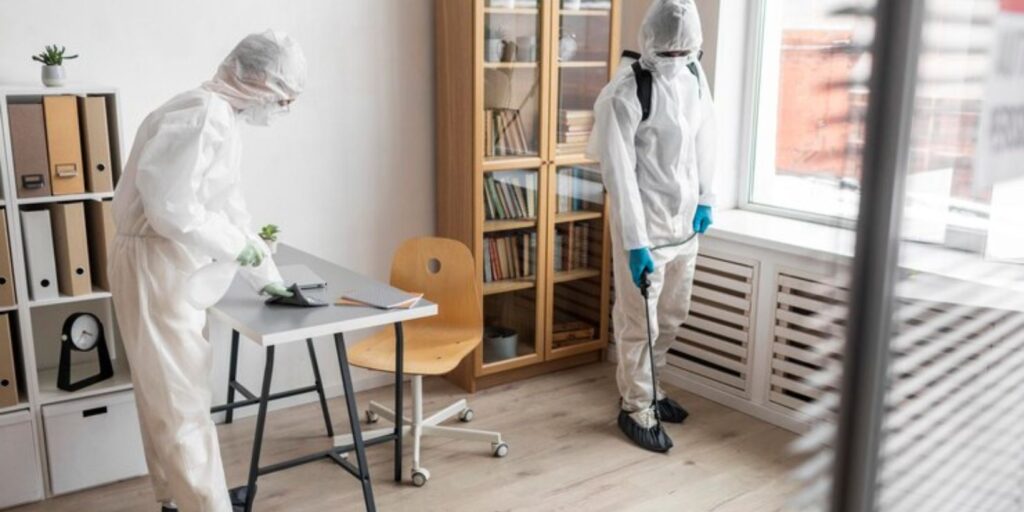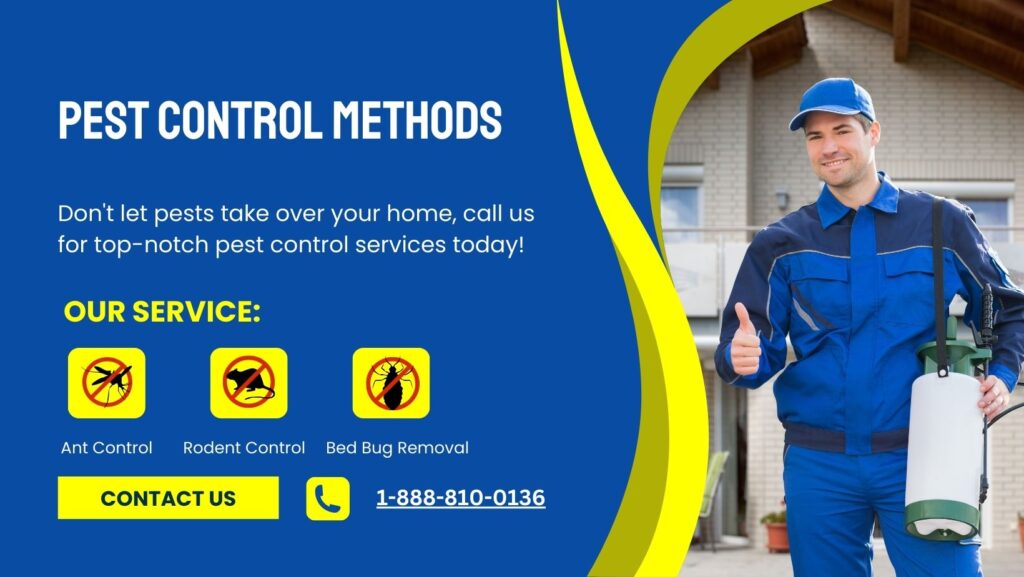Are you tired of dealing with pests in your home? Do you want to prevent them from becoming a problem in the first place? If so, then you need to start pest control in the spring. This is the best time to act, as pests become more active and begin to reproduce as the weather warms up. By following the tips in this blog post, you can keep your home pest-free all year long. We will discuss the pests to look out for in the spring and summer. The difference between DIY and professional pest control company. How to choose the right , and how to prepare your home for a pest control treatment.
Why Spring is The Best Time to Start Pest Control
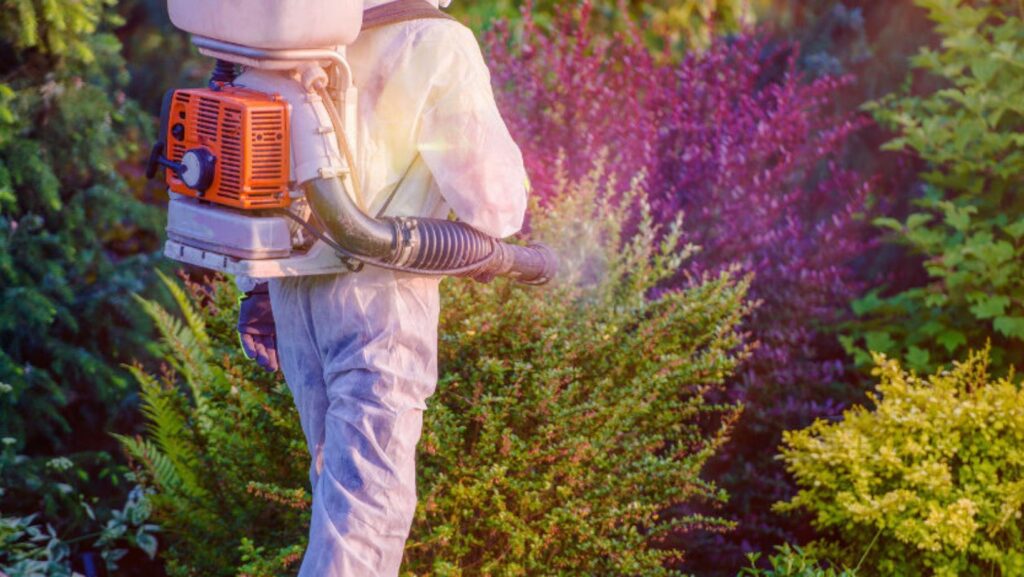
With the arrival of spring, nature awakens, and so do those pesky pests. As the weather warms up, these uninvited guests become increasingly active, seeking shelter and sustenance within our homes. But fear not, for spring presents a golden opportunity to combat these intruders and protect your abode from their invasion.
Begin by embarking on a thorough spring cleaning mission. This not only refreshes your living space but also unearths the hidden hideouts and nesting sites of pests. By removing these havens, you effectively disrupt their life cycle and reduce their presence in your home.
Furthermore, spring is the perfect time to enlist the services of professional pest control companies. Many offer enticing discounts and promotions during this season, making it an ideal time to invest in their expertise. Their targeted treatments and preventive measures can effectively deter pests from making your home their summer sanctuary.
The advantages of addressing pest control in spring are numerous. For instance, pests tend to be more visible during the day, making them easier to detect and eradicate. The mild weather conditions also favor the application of pest control treatments, making sure their effectiveness. Additionally, with fewer leaves on trees and shrubs, spotting pests and their nesting sites becomes a breeze.
Spring also presents an opportune moment to fortify your home against future pest invasions. Seal any cracks or crevices that may serve as entry points for these unwanted visitors. This proactive approach not only keeps pests out but also safeguards your home from potential damage.
By embracing pest control measures in spring, you embark on a proactive journey to maintain a pest-free haven throughout the year. This not only provides a comfortable and hygienic living environment but also protects your family from the potential health risks associated with pests. Embrace the beauty of spring and seize the chance to reclaim your home from unwanted guests.
Also Read: Keeping Your Home Pest-Free: A Comprehensive Guide to Pest Control Methods
Pests to Look Out for in The Spring and Summer
With the arrival of warmer weather, pests become increasingly active and can pose a significant threat to your home and health. Here are some common pests to watch out for during the spring and summer months, along with tips on how to prevent and control them:
- Ants: These tiny insects are known for their ability to quickly infest homes, especially if there is an accessible food source. To prevent ants, keep your kitchen clean and free of crumbs, and seal any cracks or crevices where they may enter. You can also set up ant bait stations around your home to remove existing colonies.
- Bees and wasps: These stinging insects can be aggressive when disturbed, so it’s important to take precautions to avoid them. Keep your windows and doors closed, and avoid leaving food or drinks outside. If you see a bee or wasp nest on your property, Contact a Professional Pest Control Company to have it removed.
- Cockroaches: These resilient pests thrive in warm, moist environments and can contaminate food and surfaces with their droppings. To prevent cockroaches, keep your home clean and dry, and seal any cracks or crevices where they may enter. You can also use cockroach bait traps to remove existing infestations.
- Fleas: These small, jumping insects can infest your home if you have pets. To prevent fleas, keep your pets on a flea and tick prevention, and vacuum your home regularly. You can also use flea traps to catch and cross out fleas.
- Mosquitos: These flying insects can transmit diseases such as malaria, dengue fever, and yellow fever. To prevent mosquitos, remove standing water around your home, and use insect repellent when spending time outdoors. You can also install mosquito traps to reduce the mosquito population in your area.
- Rodents: These furry pests can damage your home and contaminate food with their droppings and urine. To prevent rodents, seal any holes or cracks where they may enter, and keep your home clean and free of clutter. You can also set up rodent traps to remove existing infestations.
By taking these steps, you can help prevent and control pests in your home and enjoy a pest-free spring and summer.
DIY Pest Control vs. Professional Services
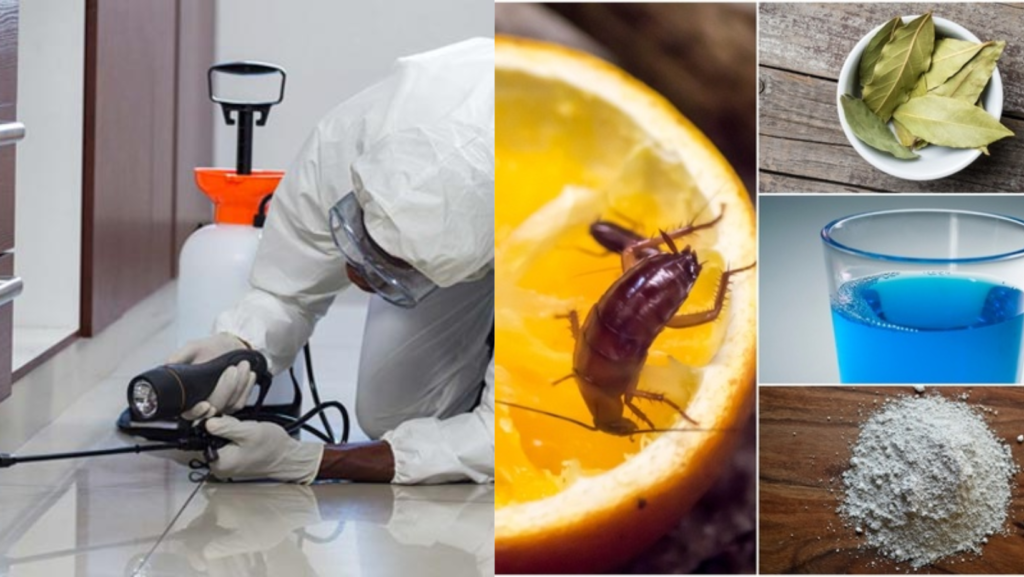
When it comes to pest control, you have two main options: DIY methods or professional services. Both have their own pros and cons, so it’s important to weigh your options before deciding which is right for you.
DIY pest control can be a cost-effective option if you have a small pest problem. There are a variety of products available at your local hardware store that can help you get rid of common pests, such as ants, roaches, and mice. However, DIY pest control can be time-consuming and may not be effective if you have a large or persistent pest problem.
Professional pest control services can be more expensive than DIY methods, but they offer a number of advantages. Pest control companies have the experience and knowledge to deal with a wide variety of pests, and they can often get rid of pests more quickly and effectively than you can on your own. They can also help you identify the source of your pest problems and take steps to prevent future infestations.
5 Tips for Choosing The Right Pest Control Company
Choosing the right pest control company can help make sure that your pest problem is resolved effectively and safely. Here are five tips to help you select the best pest control company for your needs:
- Get recommendations from friends, family, or neighbors: Personal recommendations can be a great way to find a reputable pest control company. Ask people you trust if they have used a Pest Control Company that they were happy with. If possible, try to get recommendations from people who have similar pest problems to yours.
- Read online reviews: Online reviews can provide valuable insights into the quality of pest control companies. Look for reviews that mention the company’s effectiveness, customer service, and pricing. Be wary of companies with consistently negative reviews.
- Make sure the company is licensed and insured: This is important for protecting yourself in case of any damage or injuries that occur during pest control treatment. Ask the company for proof of their license and insurance.
- Find out what methods the company uses to control pests: Some pest control companies use harsh chemicals that can be harmful to your family and pets. Ask the company about the methods they use and make sure they are safe for your situation.
- Get a written estimate of the cost of services before you agree to anything: This will help you avoid any surprises down the road. Make sure the estimate includes the cost of all services, including the initial treatment, follow-up treatments, and any additional fees.
Also Read: How Much Does Pest Control Cost in 2024?
How to Prepare Your Home for a Pest Control Treatment
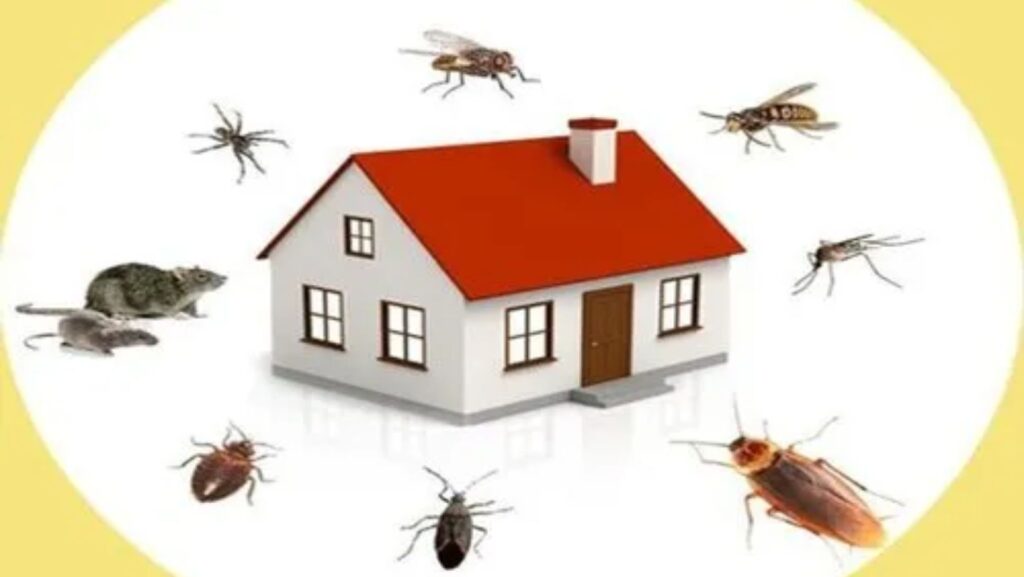
To ensure the effectiveness of pest control treatment, it’s crucial to prepare your home beforehand. Here’s a comprehensive guide to help you get ready:
- Clean your home thoroughly: Pests are attracted to dirt and clutter, so it’s essential to clean your home thoroughly before the pest control treatment. This means vacuuming, sweeping, and mopping your floors, wiping down your countertops and surfaces; and taking out the trash. Pay special attention to areas where pests are likely to hide, such as under the sink, behind the refrigerator, and in the basement.
- Keep all food items in sealed containers: Pests are also attracted to food, so it’s important to keep all food items in sealed containers. This includes both human and pet food. If you have any open food containers, be sure to put them away before the pest control treatment.
- Seal up any cracks or crevices in your walls and floors: Pests can enter your home through small cracks and crevices, so it’s important to seal them up before the pest control treatment. This can be done with caulk or weather stripping.
- Remove any clutter from your home: Clutter provides hiding places for pests, so it’s important to remove any clutter from your home before the pest control treatment. This includes old newspapers, magazines, clothes, and boxes.
- Let the pest control technician know if you have any pets or small children: It’s important to let the pest control technician know if you have any pets or small children before the treatment. This will help the technician to take precautions to make sure that the treatment does not harm your pets and children.
Frequently Asked Questions
Which month is best for pest control?
The best month for pest control depends on the specific pest problem you are facing. For most general pest problems, spring and fall are the best times to treat, as these are the seasons when pests are most active.
Why is it important to get pest control done regularly?
Regular pest control is important to prevent pests from infesting your home or business and causing damage or health problems. Pests can contaminate food, damage property, and spread diseases. They can also be a nuisance and make it difficult to enjoy your home or business.
What are some common pest control methods?
There are a variety of pest control methods available, including chemical treatments, traps, baits, and exclusion methods. The best method for you will depend on the specific pest problem you are facing.
